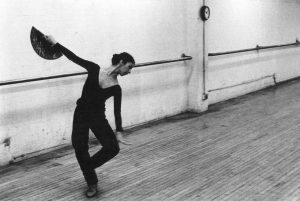I can imagine hundreds of thousands, or millions of people living balanced lives, and becoming their best selves. Whatever else this world and our lives will be, this much is attainable, and this much I can aim to encourage.
There is something that comes before all other contemplation, that if it is lacking whatever time and energy is spent in studying is as good as wasted. I’m referring here to a clarity of mind that grasps what’s being talked about, and that can understand it and make connections with our own life, at least to some extent. If we are not moved inwardly by what we hear or read, then something essential is missing.
What they call clarity in the Tibetan traditions of meditation, both in their calm abiding teachings, as well as in the Nature of Mind teachings and practice has more to do with the subjective experience of knowing than it does with having a visual experience of clarity, such as a clear image, or a clear day. Clarity in that tradition can be equated with what in the South East Asian Buddhist tradition they call sampajañña, or clear comprehension. Sometimes the compound term sati-sampajañña, or mindfulness and clear comprehension, is used. Buddhadhasa Bhikku calls sampajañña ‘Wisdom in action’, to make it apparent that this is our intelligence functioning through our day and our lives.
In the parable of the sower, the bible talks about the different qualities of mind we can have: there can be rocky soil, where almost nothing can grow; there can be better conditions for planting, and there can also be the most fertile kind of ground. The deep truth of the story is that we can make our mind more amenable to learning, and retaining what we have learned. Calm abiding teachings call this making the mind serviceable.
When I am lacking clarity of mind, I know it is what needs to come first. So how to develop this quality? 
Using the breath
At times, dullness comes from overusing the mind, and so balance, resting and refreshing ourselves and recovering our energy, is part of developing our basic clarity. For a time placing our mind on the the sensation of breathing in and out, with an awareness of the body, and with goodwill towards ourselves can calm our activity.
Sometimes it’s only when we slow down and stop that we get to see just how active we have been. The breath then has remarkable qualities that can be known and made use of. Practicing what Ajaan Lee calls ‘saturating our body with good breath energy’ rejuvenates the cells in our body, and brings light and joy to the mind. This is one kind of meditation anyone can do. It only takes regular practice, and seeing its importance.
Patience and being skillful
Being skillful is about seeing ahead of time the possible or probable results of our actions, or our taking a break and resting. Having a skillful mind is one of the ways our intelligence can function, and this includes memory, and patience, and a good measure of self confidence. 
Nourishing ourselves with joy
Nourishment is another aspect that I know I cannot neglect, if I’m to have a strong mind. By nourishment here I mean intellectual and spiritual food, joy and inspiration that reaches deep into the body and mind. I receive this via music and art, children and family, and from the natural world. These blessings make the mind more and more capable. With this kind of sustenance, well fortified, we bring out the minds full strength.


Freshness is a mind that is able to receive knowledge, beauty, and meaning and make connections with our own life. This is what I wish for myself, naturally, and for all others, so they too are able to learn, and make the most of their precious lives.
Featured image by Stefano Termanini. Photograph 2 by Jason Espada. 3, 5, and 6 by Frank Espada.
